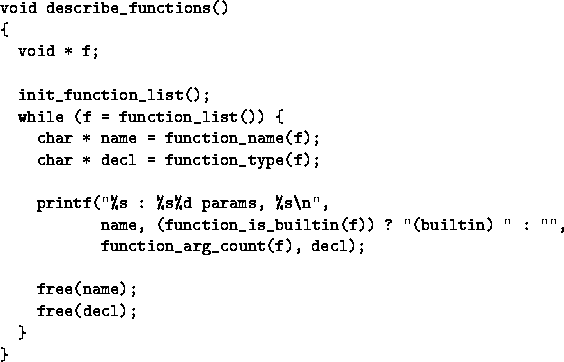
Because is an interpreter, a function is a real object and it is possible to access to information about it at run time:
char * function_name(void * function)
Returns the function (built-in or not) whose name is function_name if this one exists, else returns 0. It is used for instance in the edir.sc SmacLib files to load color.sc, if this is not already done.
Be careful, the string is allocated each time the function is called, use free() to release it.
int function_arg_count(function)
Returns the function number of arguments. If the function accepts a variable number of arguments, it returns its minimal number, for instance 1 for printf().
int function_is_builtin(function)
Returns 1 if the function is a built-in function, else 0.
char * function_type(function)
Returns a new allocated string containing the function type.
For instancefunction_type(function_type)
returns the following string: "char*(*)(void*)".
Be careful, the string is allocated each time the function is called, use free() to release it.
void init_function_list()
void * function_list()
These two functions are intended to access to all the defined functions (built-in or not). initfunctionlist initializes the iteration, and functionlist returns each time a different function or 0 when all the functions have been accessed. For instance, the following function is defined in the describe.sc file):
